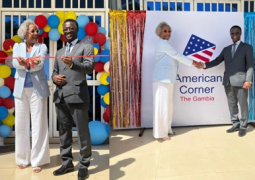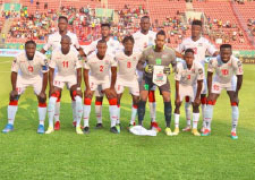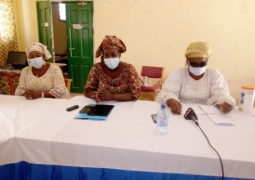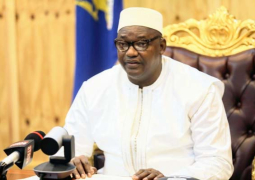
The country in 2021 was ranked 85 of 180 countries with a score of 69.24%. It’s also ranked 8th in Africa as compared with 9th last year.
RSF’s 2022 World Press Freedom Index – a new era of polarisation The 20th World Press Freedom Index published by Reporters Without Borders (RSF) reveals a two-fold increase in polarisation amplified by information chaos – that is, media polarisation fuelling divisions within countries, as well as polarisation between countries at the international level.
“Since President Adama Barrow was inaugurated in December 2016, the state-owned broadcaster lost its monopoly, and many radio and television networks, both private and community-based, emerged. Gambia has 33 radio stations, one of which is state-owned, six television networks, five of which are private, and four dailies (the most important being The Point). There are also three newspapers that are published three times a week.”
Sadibou Marong, head of RSF West Africa Office, reacting on Gambia’s ranking states:
“We welcome Gambia’s progress but recall that Jammeh should be tried for killing journalist.”
“Gambia has reached the 50th rank in the RSF 2022 World Press Freedom Index. In 2021, Gambia was at the 85th ranking. There is a strong progress for Gambia with a jump of 35 points. We note that Gambia is being more and more open in terms of press freedom since Jammeh’s era. There is a decrease in attacks against journalists and the emergence of new media.”
In 2017, Gambia was at the 147th ranking and since then has done a nearly 100 steps forward recahing 50th. We have seen a demonopolization of television, and more private and public radios.
“We have seen the enactment of the Access to Information Bill , and the recommendations of the Truth and Reconciliation Commission on crimes against journalists with the case of Deyda Hydara.
RSF welcomes this progress, which is a continuation of the progress already recorded since the departure of Yahya Jammeh in 2017, but recalls that the political price of stability must not be Jammeh’s impunity and we recall that Jammeh should be tried for all violations committed including the murder of Deyda Hydara. We will closely follow how President Barrow’s government reacts to the commission’s conclusions.”
The 2022 edition of the World Press Freedom Index, which assesses the state of journalism in 180 countries and territories, highlights the disastrous effects of news and information chaos – the effects of a globalised and unregulated online information space that encourages fake news and propaganda.
Within democratic societies, divisions are growing as a result of the spread of opinion media following the “Fox News model” and the spread of disinformation circuits that are amplified by the way social media functions. At the international level, democracies are being weakened by the asymmetry between open societies and despotic regimes that control their media and online platforms while waging propaganda wars against democracies. Polarisation on these two levels is fuelling increased tension.
The world’s 10 worst countries for press freedom include Myanmar (176th), where the February 2021 coup d’état set press freedom back by 10 years, as well as China, Turkmenistan (177th), Iran (178th), Eritrea (179th) and North Korea (180th).
RSF Secretary-General Christophe Deloire said: “Margarita Simonyan, the Editor in Chief of RT (the former Russia Today), revealed what she really thinks in a Russia One TV broadcast when she said, ‘no great nation can exist without control over information.’ The creation of media weaponry in authoritarian countries eliminates their citizens’ right to information but is also linked to the rise in international tension, which can lead to the worst kind of wars. Domestically, the ‘Fox News-isation’ of the media poses a fatal danger for democracies because it undermines the basis of civil harmony and tolerant public debate. Urgent decisions are needed in response to these issues, promoting a New Deal for Journalism, as proposed by the Forum on Information and Democracy, and adopting an appropriate legal framework, with a system to protect democratic online information spaces.”





